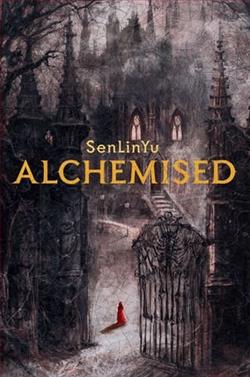Page 70 of Murder at Hambledon Hall
Mr. Browning’s nostrils flared, rather like his wife’s did when I said something to offend her. “That’s an absurd accusation.”
“Only if it isn’t true. I know that you, Shepherd and a man named Faine stole valuable items from Lord and Lady Kershaw.”
Mr. Browning’s lips twisted with his smile. “If that were so, why weren’t the police notified?”
“Because Lord and Lady Kershaw knewyouwere the one stealing from them, and they overlooked it because you’re family. This way, they’re able to help you pay off your debts without embarrassing you. As you were stealing items that have no sentimental value, they don’t feel compelled to stop you. You knew Lady Kershaw despised those candlesticks, and teaspoons can be easily replaced.”
Mr. Browning took a step toward me, but Floyd intercepted him.
“Did Shepherd take more than his share?” Floyd asked. “Is that why you killed him?”
“I didn’t kill him.” Mr. Browning kept his voice low and glanced around. “Don’t spread that lie, Bainbridge.” He tugged on the hem of his jacket to straighten it after Floyd’s punch wrinkled it. “It’s true that we were partners in a little…scheme. It was only a few things that were easy to melt down or sell off. Except for that blasted rifle.”
“What rifle?” I asked.
“The one made by James Purdey & Sons that was displayed on the armory wall. It was originally made for royalty and is now a collector’s piece, worth a fortune to the right buyer. The problem is, those sorts of buyers aren’t easy to find and Faine couldn’t get rid of it using his usual network.”
“Is the rifle still in Faine’s possession?”
“I suppose so.” He rubbed his hand across his mouth again. “Listen. I didn’t kill Shepherd. There was no falling out, or anything like that.”
“What was Shepherd’s role in the scheme?”
“He knew of a way to get Kershaw to close the bridleway, so the goods could be moved without anyone from the public stumbling on us.”
“What way?”
“I don’t know. He wouldn’t tell us.”
“Kershaw wasn’t suspicious as to the reason for wanting the bridleway closed?”
He shrugged. “I assume whatever Shepherd had on Kershaw shut down any questions. Anyway, you’re probably right and he knows I’m in it up to my neck.” He huffed a humorless laugh. “He’s the one you should be looking at for the murder, not me. Kershaw could have killed Shepherd because he was tired of being blackmailed.” He seemed to take great delight in realizing that his brother-in-law had a strong motive for murdering the gamekeeper.
I wasn’t sure if ending the blackmail was a good reason for murder, however. Why end it now? And why end it with murder when telling the police about the thefts would have sufficed? He could have got Sergeant Honeyman to overlook Mr. Browning’s involvement, if necessary.
It would be interesting to see if Lord Kershaw reopened the bridleway now that Shepherd could no longer blackmail him. It would certainly add weight to the argument that he was the murderer.
Floyd and I watched Mr. Browning make his way back to his room. Once he was inside, I kissed Floyd’s cheek. “Thank you for defending me. You really are a sweetheart.”
“I know, but don’t tell anyone. It’ll ruin my reputation.” He winked and sauntered off toward his own suite.
I smiled, my mood dramatically improved now that I knew what step to take next.
Chapter15
Harry was keen to return to Morcombe with me. I’d not wanted to search Faine’s property alone and he agreed it was necessary to go immediately. But first, he suggested he telephone his father and find out what he could about the bullet that shot Esmond Shepherd.
I had an even better idea, however. “I’ll contact D.S. Forrester at Scotland Yard. I think it’s time to involve an active member of the police force, not a retired one.”
“Or a corrupt one,” Harry added. “The local man, Honeyman, is entirely under Kershaw’s thumb.”
Harry listened with a frown as I told Monty Forrester about the investigation over the telephone, and what information I needed from him. The frown only appeared when I called the detective sergeant by his first name.
An hour and a half later, we once again ventured into the courtyard of the Red Lion Inn, being careful not to be seen. It was Sunday morning, and the inn was quiet. Indeed, the village seemed quiet. Shops were closed, and an overcast day kept the ramblers away. We hid behind some beer barrels in the courtyard, watching the converted coach house for any sign of Faine. After twenty minutes, however, no one emerged from his room and I grew impatient.
“I’ll draw him out if he’s in there,” I said. “I’ll suggest we have a drink together. Then you go in and search.”
“That’s a terrible idea. He’ll know you’re up to something.”















